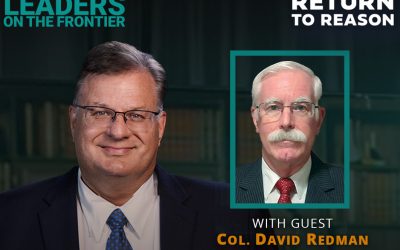OTTAWA — Here’s a perceptive analysis of an important national election: “There is no escaping the stark fact of the repudiation of a regime that had outlived its time. There is no escaping the stark fact that (though the personalities of the candidates played a vital role) ideas were more important. My own thinking is that, by the time of the election, the pursuit of equality in this country had created a system of interlocking dependencies, and the people were persuaded that the cost of equality had come to crush the promise of opportunity. These competing ideas struggled with each other all through the campaign, and one of them came to prevail over the other. This could make the election a watershed in history.”
These words could have been aptly written within the last four months to describe Canada’s tentative repudiation of equality-obsessed liberalism in the January federal election. They were not. They were written by Theodore H. White, the American journalist and historian, in his account of the 1980 election in which Ronald Reagan defeated Jimmy Carter for the U.S. presidency.
It was Mr. White, a close friend of John F. Kennedy, who first associated the Kennedy presidency with Arthurian legend, with Camelot. Yet, writing in 1982 in the fifth volume of his “The Making of the President” series, America in Search of Itself, Mr. White acknowledged the United States had — “somewhere, in the decades of upheaval” — made a wrong turning.
Was it an American evening? Or was it an American dawn? “It is dawn,” he wrote, “if [Mr. Reagan’s conservative principles] release us from this web of federal control.”
As it happened, it was dawn indeed — although Mr. Reagan’s “morning in America” has since gone through its share of overcast skies. Nevertheless, as a percentage of GDP, U.S. federal spending peaked in 1982 at 20 per cent. It remains at 20 per cent now, notwithstanding the war spending in Afghanistan and Iraq. Mr. Reagan stopped the growth of the federal government, an authentic watershed achievement. (Federal spending as a percentage of GDP had risen relentlessly, incrementally, from 15 per cent during the 1950s presidency of Dwight D. Eisenhower.) More importantly, Mr. Reagan made economic growth — “the promise of opportunity” — the single indispensable objective of American politics. In doing so, he set off such an expansion in federal tax revenues that successive administrations have been able to spend vastly more money without increasing the government’s relative presence in the economy.
In 1982, Mr. Reagan’s supply-side (“voodoo”) tax cuts kicked in, launching a generation of extraordinary economic growth. In the six Reagan years that followed, GDP increased by 31 per cent. In eight Bill Clinton years, it increased by 38 per cent. In six George W. Bush years, the U.S. has produced 30 per cent of all of the economic growth in the world. U.S. GDP was still increasing in the first quarter of 2006, rising at an annual rate of 5.3 per cent. In the past 25 years, inflation-adjusted American GDP has increased by $6.2-trillion (U.S.) — 120 per cent. The Wall Street Journal has calculated that more wealth was created in these years than in the previous 200 combined. The pursuit of equality no longer crushes the promise of opportunity. Yet federal intrusion remains at its high-water mark in the U.S. — as it does in Canada.
Which brings us to former Conservative prime minister Brian Mulroney’s appraisal of Conservative Prime Minister Stephen Harper. “Harper is more like Ronald Reagan than any leader I’ve known,” Mr. Mulroney told CanWest columnist Don Martin. “He is his own man. The uncluttered agenda. The decisiveness. The capacity to make a decision and walk away from it and not worry about it.”
Which brings us again to the description of the American election in 1980 that could have been written for a Canadian election a generation later. Mr. Mulroney is quite right: Mr. Harper is, in a word, Reaganesque. The compelling personal traits are a certain principled defiance, a precise sense of moral purpose. His challenges are decidedly Reaganesque as well — the exhausted obsession with equality rights, the ubiquitous intrusion of federal authority.
Mr. Harper has drawn some criticism for his willingness to restore “fiscal balance” in the federation. It has been said that he seeks seats in Quebec, nothing more; that he will use public funds to buy them. Whatever political calculations may be made in the midst of the approaching deliberations, these criticisms miss Mr. Harper’s very substantial objectives. A definitive set of job descriptions for the federal government and the provinces. More free trade within our own country. A national securities regulator. These are difficult goals. They may be impossible goals. But they are necessary.
Of them all, the most important by far are the job descriptions. If the federal government and the provinces can agree on these, Mr. Harper can restore to the provinces the money it now collects to do jobs that are no business of the federal government. Should Mr. Harper succeed only in this assignment, Canada will have had a watershed election of its own — and a sunrise, too.
nreynolds@xplornet.com


